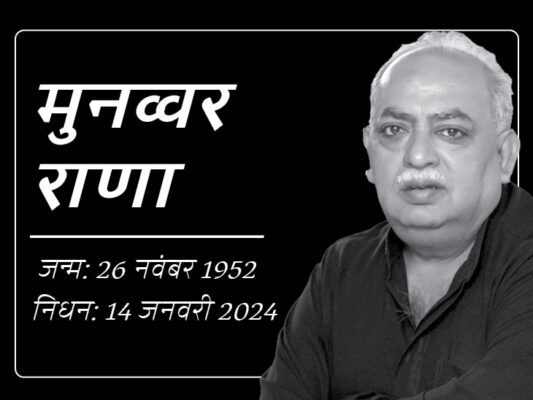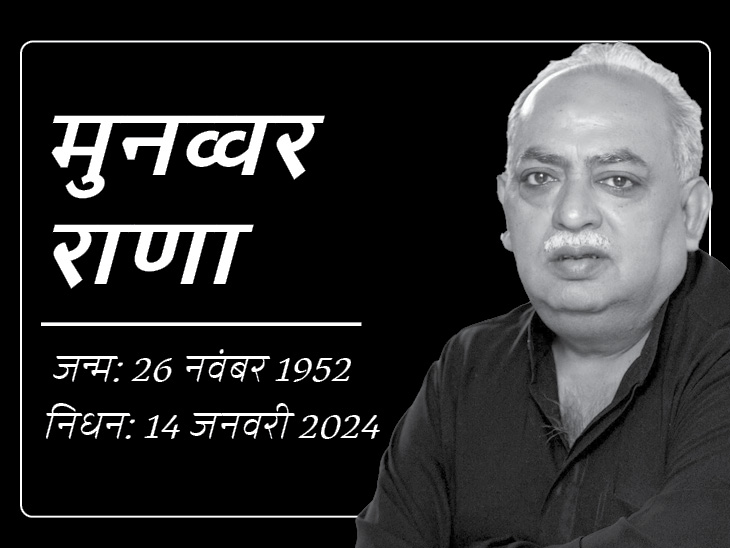Munawwar Rana: A Poetic Legacy
Born in Raebareli, Uttar Pradesh, on November 26, 1952, Munawwar Rana etched his name in the annals of Indian Urdu poetry. He navigated both Urdu and Hindi with finesse, captivating audiences with his potent verses and electrifying mushairas. Rana’s poetic tapestry explored love, loss, societal critique, and the indomitable human spirit.
Early Influences and Accolades:
Shaped by Kolkata’s rich cultural tapestry, Rana honed his craft under legendary poets like Akhtarul Iman and Jan Nisar Akhtar. His groundbreaking poem “Maa,” a ghazal-form ode to motherhood, soared to national fame.
Rana’s literary prowess garnered him numerous accolades, including:
- Sahitya Akademi Award (2014): For his collection “Shahdaba”
- Ghalib Award
- Mir Taqi Mir Award
- Saraswati Samaj Award
- Ameer Khusro Award
- Dr. Zakir Hussain Award

Beyond Poetry:
Rana transcended mere poet status, becoming a cultural icon. His powerful recitations and engaging personality made him a mushaira mainstay. He even ventured into filmmaking and penned Bollywood lyrics.
A Bold Stand:
In 2015, Rana made a powerful statement by returning the Sahitya Akademi Award, protesting rising intolerance and social discord in India. This sparked national debate and solidified his commitment to social justice and free expression.
Rana’s Legacy:
Munawwar Rana’s poetic voice continues to resonate. His verses inspire and challenge readers, while his unwavering stance against injustice serves as a guiding light. He will be remembered as a poet who championed the voiceless and spoke truth to power with his soulful verses.
Further Details:
- Renowned poet collections: “Muhajirnama,” “Ghar Akela Ho Gaya,” “Peepal Chhaon”
- Translated poems: Hindi, Urdu, Gurumukhi, Bangla
- Known for wit and satire in tackling social issues
- Advocate for peace and inter-community harmony
This text delves into Munawwar Rana’s life and work without images, painting a portrait of a poet who continues to influence and inspire.

